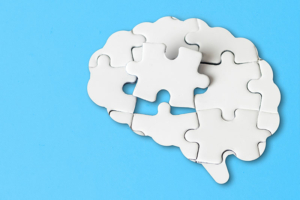Charting New Horizons: Advancements in Alzheimer’s Science

Key advancements in Alzheimer’s science pave the way to hope for millions.
One positive thing about Alzheimer’s disease is it has seized the eye of researchers everywhere who are driven to identify new treatment options. When someone you love is diagnosed with Alzheimer’s, however, the urgency to find help is even greater. If this is you, be encouraged! Though Aduhelm, the controversial medication approved by the FDA in 2021, stirred debate and raised questions about its effectiveness and safety, scientists have been diligently working on alternative solutions that provide renewed hope.
Here are a few of the promising new advancements in Alzheimer’s science researchers are exploring.
- New insight into lifestyle modifications and holistic solutions. More natural approaches are also gaining recognition as important aspects of Alzheimer’s care. There is growing evidence that a multifaceted care plan that incorporates exercise, nutrition, cognitive stimulation, and social engagement can notably improve outcomes and quality of life for individuals living with Alzheimer’s disease.
- Targeting the underlying mechanisms of the disease, rather than just addressing its symptoms. Scientists are exploring a range of novel therapies that endeavor to prevent or reduce the progression of the disease by treating the buildup of toxic proteins within the brain, such as beta-amyloid and tau. These innovative treatments represent a shift towards more targeted and personalized approaches to Alzheimer’s disease care.
- Technology and neuroimaging developments. These developments have enabled researchers to gain a deeper knowledge of the intricate processes associated with Alzheimer’s disease, paving the way for more accurate diagnostic tools and therapeutic treatments. This includes state of the art brain imaging techniques, innovative biomarker tests, and more.
There are additional promising avenues that may further revolutionize Alzheimer’s disease treatment, including:
- Medication delivery systems. Novel drug delivery systems are being explored that could boost the effectiveness of Alzheimer’s treatments while minimizing side effects, such as nanoparticle-based delivery systems and targeted drug delivery using focused ultrasound technology.
- Gut health. The growing understanding of the gut-brain axis has stimulated interest in the potential role of gut health in Alzheimer’s disease. Growing evidence indicates that gut microbiota composition may influence brain function and may play a role in the development and progression of Alzheimer’s disease. This has led to investigations into the therapeutic potential of probiotics, prebiotics, and dietary interventions aimed at modulating gut microbiota to support brain health.
- Immunotherapy. Immunotherapy, which involves harnessing the body’s immune system to target and clear away toxic proteins associated with Alzheimer’s disease. Immunotherapeutic approaches hold enormous potential for slowing disease advancement and preserving cognitive function in patients.
While the journey ahead may still be long and challenging, the continued emphasis on advancements in Alzheimer’s science offers all of us a ray of hope. As the dementia care experts in Huntington Beach, Mission Viejo, Newport Beach, and throughout Orange County, we are here to help ease the journey through Alzheimer’s. Contact us online or at (949) 859-4700 for helpful resources and more info on our skilled in-home dementia care services.
